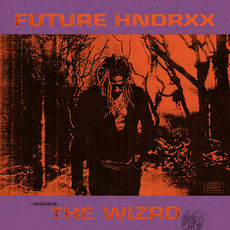Here be story of a honeymoon period followed by a descent into Hell itself. Between October 2014 and March 2015, Atlanta rapper Future (who the record industry had long confined to being an obedient star that many were quick to label as yet another materialist and pleasure-seeking rapper) gave us the rare chance to help in accelerate in real time the creation of a legendary persona. Hurt and humiliated from a front-page break up and ravaged by the perverse effects of success and overexposure, he escaped this turmoil by releasing a series of three liberating, nihilist and wonderful mixtapes as a form of therapy.
It has been said that Future was the missing link between Gucci Mane’s trap music and Outkast’s gangsta-funk, two institutions in their native town of Atlanta which became at the start of the 2000s the new world capital for rap and seems to have not since given up its place. In fact, before he was known as Future, Nayvadius DeMun Wilburn earned his stripes as a member of Dungeon Family with his cousin Rico Wade (producer for Outkast). Like most Atlanta-based rappers, he eventually crossed paths with Gucci Mane (they would release a mixtape together in 2011 followed by an EP in 2016). But it was under the wing of a certain Rocko, previously signed to Def Jam, that Future entered the mixtape market in 2010, releasing eight of them before Astronaut Status, the promising prelude to his first studio album Pluto carried by the successful single Turn On the Lights and distributed by major label Epic in April 2012.
The album was Future’s calling card to the masses, an entertaining blockbuster featuring the likes of Snoop Dogg, Drake and R. Kelly, but a badly dressed record which yearned to please at all costs. It nevertheless contained some gems and, in hindsight, marked an essential milestone in the history of contemporary rap. By bringing autotune back into fashion (the method had been crushed three years earlier with D.O.A. (Death of Auto-Tune) by Jay-Z) which he used like no one else to perfect his, then entirely new, formula of melodic pop-rap with absurd and sombre punchlines, Future laid the foundations for the future of rap and opened the door to Young Thug and many others. The album was critically divisive and the commercial success was relative, but those in the know saw Pluto as the start of an exceptional career.
Create a free account to keep reading












